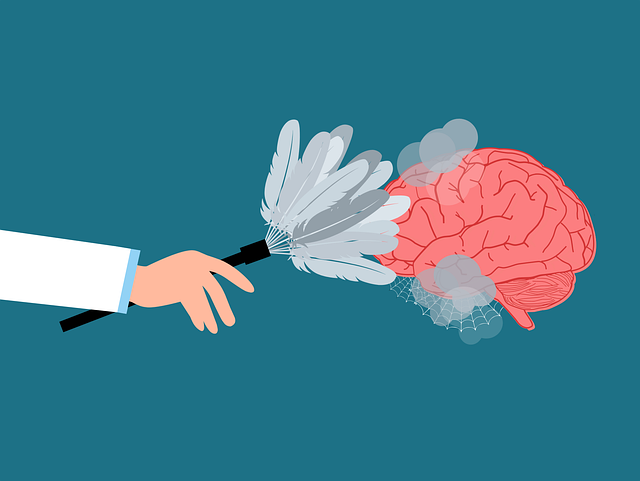Mental health professionals using Littleton Cognitive Behavioral Therapy (LCBT) face challenges like burnout, secondary trauma, and ethical dilemmas due to intense emotional connections with clients. To mitigate these risks, they should prioritize self-care, seek supervision, and access peer support networks while incorporating LCBT techniques into their practice for improved well-being and client outcomes. A comprehensive risk assessment framework includes detailed patient history evaluation, regular progress monitoring, trauma support services, Mind Over Matter principles, and self-care routine development. Effective risk management through personalized interventions creates a safe therapeutic environment, enhancing the capabilities of practitioners to deliver high-quality LCBT therapy for vulnerable populations.
Mental health professionals face unique risks that demand meticulous attention. This article explores comprehensive risk assessment strategies tailored specifically for this critical sector, focusing on mental health practitioners’ vulnerabilities. We delve into the significance of understanding these risks and present evidence-based solutions, particularly highlighting the role of Littleton Cognitive Behavioral Therapy (LCBT) in mitigating potential hazards. Essential components of a robust risk assessment framework are outlined, along with effective prevention and management strategies.
- Understanding Mental Health Professional's Unique Risks
- The Role of Littleton Cognitive Behavioral Therapy (LCBT) in Risk Mitigation
- Essential Components of a Comprehensive Risk Assessment Framework
- Strategies for Effective Risk Management and Prevention
Understanding Mental Health Professional's Unique Risks

Mental health professionals, including therapists offering Littleton Cognitive Behavioral Therapy (LCBT) and other therapeutic services, face unique challenges that can impact their mental wellness. The nature of their work often involves intense emotional connections with clients, which can be both rewarding and potentially stressful. This dynamic necessitates a deep understanding of one’s own psychological boundaries and resilience to navigate the complex emotions that arise in the therapeutic relationship.
Risk management planning for these professionals is an essential component of maintaining mental wellness coaching programs and positive thinking. It involves recognizing and mitigating potential hazards, such as burnout, secondary trauma, and ethical dilemmas. Effective risk assessment includes regular self-care practices, supervision, and access to peer support networks. By prioritizing their own well-being, mental health professionals can ensure they are equipped to provide the best care for their clients.
The Role of Littleton Cognitive Behavioral Therapy (LCBT) in Risk Mitigation

Littleton Cognitive Behavioral Therapy (LCBT) plays a pivotal role in mitigating risks within the mental health profession. This therapeutic approach focuses on identifying and modifying negative thought patterns, offering professionals a powerful tool to enhance their resilience. By teaching individuals to challenge distorted cognitions and replace them with more realistic and positive ones, LCBT empowers practitioners to better manage stress and difficult situations.
Incorporating LCBT techniques into regular practice can effectively reduce the risk of burnout and improve overall mental wellness. Moreover, it provides professionals with effective crisis intervention guidance, enabling them to respond calmly and efficiently during challenging interactions with clients. Stress Management Workshops Organization often incorporates elements of LCBT to equip mental health professionals with the skills needed to navigate complex situations, ultimately fostering a healthier work environment and improving client outcomes.
Essential Components of a Comprehensive Risk Assessment Framework

A comprehensive risk assessment framework for mental health professionals should incorporate several essential components to ensure effective identification and management of potential risks within their practice. Firstly, a thorough patient history evaluation is crucial, delving into past traumas, medical histories, and current life stressors that may impact an individual’s mental well-being. This includes exploring any previous experiences with therapy, such as the effectiveness of Littleton Cognitive Behavioral Therapy (LCBT), to gain insights into what works best for the client.
Additionally, a robust framework must involve regular monitoring of patient progress and symptoms, enabling professionals to swiftly recognize any deteriorations or emerging risks. Integrating Trauma Support Services, fostering a deep understanding of Mind Over Matter Principles, and promoting Self-Care Routine Development for Better Mental Health are integral parts of this process. These strategies not only enhance the therapist’s ability to support clients but also contribute to maintaining a safe and therapeutic environment.
Strategies for Effective Risk Management and Prevention

Mental health professionals are continually navigating complex situations that involve highly sensitive and vulnerable populations. Therefore, implementing robust risk management strategies is paramount for maintaining a safe therapeutic environment, particularly when offering Littleton Cognitive Behavioral Therapy (CBT). Effective risk assessment involves identifying potential hazards early on, understanding their origins, and devising tailored interventions to mitigate their impact.
To effectively manage risks, professionals should prioritize Trauma Support Services, especially when dealing with clients who have experienced traumatic events. This can include integrating Stress Management techniques into the therapy process to help individuals develop coping skills for managing anxiety and distress. By fostering a culture of open communication, continuous learning, and self-care, mental health practitioners can ensure they are equipped to handle various risks while providing the highest quality care, ultimately enhancing the therapeutic outcomes for their clients.
Mental health professionals face unique risks that require proactive risk assessment and management. By understanding these specific challenges, such as high stress levels, complex client cases, and potential exposure to traumatic content, professionals can implement effective strategies for prevention. Integrating evidence-based practices like Littleton Cognitive Behavioral Therapy (LCBT) offers a powerful tool to enhance resilience and mitigate risks. A comprehensive risk assessment framework, coupled with tailored interventions, ensures the well-being of these essential workers while optimizing patient care.














